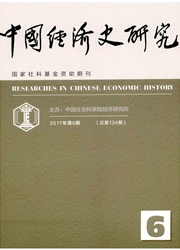

 中文摘要:
中文摘要:
南宋朱熹设计并亲自实践的五夫社仓,起到了备荒、救荒的社会功能。宋孝宗批准社仓建议并将其推行于天下时,由于执政部门(即户部等)规定社仓设置之初的官本必须在正税之外附加征收,大多数地方官员虚与应付,致使社仓设计并没有得到行政上的广泛普及,而只有一些道德上的模仿。尽管如此,朱熹的社仓设计对于后世却影响深远,特别是清代的康雍乾时期,当政者每每以朱熹《社仓事目》为指南,大力推行社仓制度,在行政制度上予以相应的保障与施行,以至乾隆年间成为朱熹之后践行其社仓理念最繁盛的时期。换言之,南宋时期朱熹所设计的社仓制度,是在清代的康雍乾时期得到了行政上的真正施行。通过从南宋时期以至清代社仓的变迁历程,更可体会到朱熹所具有的长远文化精神。
 英文摘要:
英文摘要:
the Wufu Storehouse designed by Zhuxi in Southern Song Dynasty had social functions of preparation against natural disasters and calamity relief. When Emperor Xiaozong of Song approved Zhuxi's Storehouse proposal and carried out in local society, most local administrators treated it passively, because the Ministry of Revenue had the provision that the official capital when the storehouse was first founded had to be surcharged in addition to normal tax, thus causing Zhuxi's storehouse design didn't have administrational popularization except moral imitation. However, Zhuxi's storehouse design has far-reaching influence on later generations, especially during Kangxi , Yongzheng and Qianlong Period in Qing Dynasty The administrators during those period usually take Shecang-shimu as guidelines to put storehouse system into force and gave it according guarantees from administration system. Qianlong period in Qing Dynasty is the most thriving period to implement Zhuxi's storehouse idea. Through the storehouse transform course from Southern Song to Qing Dynasty, we can deeply experience Zhuxi's profound cultural spirit.
 同期刊论文项目
同期刊论文项目
 同项目期刊论文
同项目期刊论文
 期刊信息
期刊信息
